Edward Baker
Based at: University of Reading
Industrial Partner: G's Fresh
PhD Title: Developing soil health indicators to inform land management decisions and increase crop yield and quality
Fortunate enough to grow up in rural surroundings, I undertook regular adventures into the countryside, which created my passion and intrigue for the environment. Mainly, I am fascinated by our interactions with the environment and the dependencies we place upon natural systems, particularly relevant in the Agricultural and Horticultural sectors.
Following this path, I chose to study a Bachelors in Human and Physical Geography which allowed me to develop a deeper understanding of our relationship with the natural environment. My final research topic delved into the role of food governance and quality assurance within an emerging food network. This insight and continuing interest in overarching governance led to completion of a Masters in Law, researching Environmental Law, Commercial and Residential Land Law and Intellectual Property Law.
After working in the corporate legal field, I was drawn back to research. Having experienced the inner working and challenges of running a farm, I am currently involved in developing a suite of on-farm soil health indicators that will inform on land management decisions and help to increase crop yield and quality.

Jessica Fostvedt
Based at: University of Reading in collaboration with University of East Anglia
Industrial Partner: Greencell
PhD Title: Understanding the epidemiology of fungal pathogens and their impact on seasonal variation in avocado quality throughout the supply chain.
I am a plant biologist at the University of Reading working toward a PhD in plant disease control. The focus of the project is on the fungal pathogens which infect commercial avocados, and someday I hope to apply these skills to the many other tree diseases currently threatening our forests.
Trees have always fascinated me, and avocado trees are an especially fashionable commodity right now. Hopefully my research will reduce the devastating loss that avocado growers and suppliers currently face due to fungal rots. If I’m very successful, you may never buy a rotten avocado again! But I’m also realistic…
As an undergraduate, I worked with the algae species Chlamydomonas reinhardtii where I developed a genetic transformation technique using the viral 2A skip mechanism. Next I studied plant cytoskeleton organization in Arabidopsis thaliana and Nicotiana benthamiana using confocal mycroscopy. From here I worked in a proteomics laboratory studying photosynthesis regulation, but decided that I would rather work in ecology. I came to the University of Reading as a new Plant Diversity student, and I plan to leave it as a tree disease specialist.
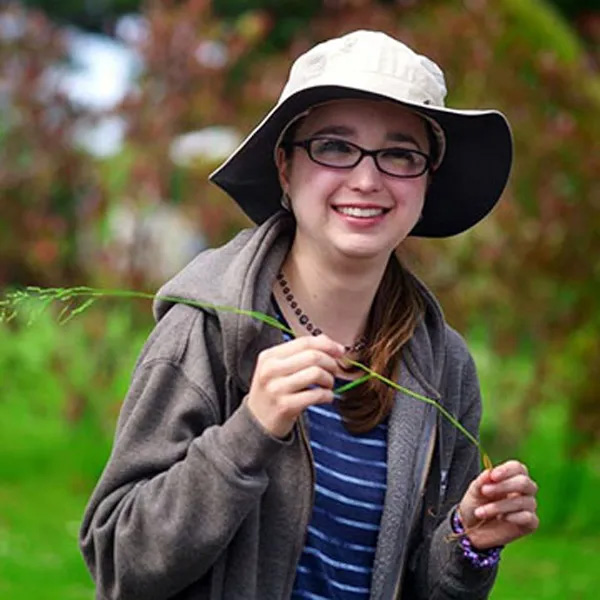
Dion Garrett
Based at: Rothamsted Research
Industrial Partner: G's Fresh
PhD Title: Using landscape genomics to improve management of insect pest species
Growing up in rural Suffolk, I have always had an interest in entomology and the natural environment. A large proportion of my free time was spent catching/identifying insects and exploring the outdoors. This childhood curiosity influenced my decision to study Bioscience at an undergraduate level where I developed a strong scientific understanding and background of the subject area.
After graduation, I was selected to conduct a 6-month internship with Kent Wildlife Trust, working in partnership with Natural England, to identify environmental niches of an endangered species of Gastropod (Segmentina nitida). Following this internship, I joined the Immunology department of the Animal Health Trust as a Research Assistant. The primary goal of this research was to improve the understanding of equine immunity induced by the pathogens during infection, and by vaccination. During employment, I was assistant investigator on several studies and acquired practical molecular and immunological techniques and contributed to research publications.
After gaining valuable laboratory experience, I wanted to pursue a career in entomology, and consequently completed an MSc in entomology at Harper Adams University. My research project was carried out in collaboration with the University of Birmingham (School of Biosciences) and the Birmingham Institute of Forest Research (BIFoR). BIFoR is a large-scale Free Air Carbon Enrichment (FACE) experiment with the overarching aim to understand the future effects of increased levels of carbon dioxide (550 parts per million (ppm) predicted in 2050; c.400 ppm at present) on our forests. Arthropods (including insects) make up the majority of all terrestrial eukaryotic organisms (>1 million described species) and play a significant role in maintaining the function of healthy ecosystems. In a forest environment, arthropods help maintain key ecological processes such as linking above and below ground processes, nutrient cycling, energy flow, species composition and community structure and function. Additionally, insects are important pollinators, herbivores, parasitoids and predators within forest environments and, as a result, a change in abundance and community composition could severely impact the structure and function of forest ecosystems. My project sought to identify whether elevated levels of atmospheric carbon dioxide affects arthropod abundance, diversity and phenology within temperate deciduous oak woodlands. The results from my research suggest that the increased levels of carbon dioxide could influence the overall abundance of arthropods within temperate deciduous oak woodlands and subsequently affect the structure and function forest ecosystems.
I am now a PhD student based at Rothamsted Research (registered at the University of Warwick) and part of the new Waitrose CTP scheme. My PhD project aims to address the issue of the negative impact of insect pests within agriculture, which can result in large economic losses. Monitoring migration patterns of aphid pest species is challenging due to size and the difficultly tracking individuals. Additionally, many insect pests are becoming increasingly resistant to insecticides and/or host-plant resistant cultivars. By incorporating the use of landscape genomics, and applying this to a model system (Nasonovia rebisnigri – the currant-lettuce aphid), I hope to help improve aphid surveillance systems (earlier detection of migration into the crop) and provide important information on the evolution and spread of resistance within the UK.

Hannah McGrath
Based at: Rothamsted Research
Industrial Partner: Huntapac
PhD Title: Bespoke field margins for delivering multiple benefits to fresh produce
Hannah is aiming to understand and help improve the use of functional biodiversity within farm landscapes, to support both production and achieve conservation goals. Working with Huntapac as a commercial partner, Hannah’s project looks at reducing the pest pressure within Huntapac’s carrot fields using natural enemies.
To achieve pest control and provide other ecosystem services, this PhD project will design and test bespoke plant mixes around the edge of fields. Pot experiments will expand carrot pests’ fundamental science and will support the establishment of field trials in Huntapac fields.
In 2017, Hannah graduated from the University of Warwick with an MSc degree in Environmental Bioscience (with Distinction), where her thesis project focused on studying carrot pests throughout the landscape. Her undergraduate degree in Natural Sciences from the University of Bath included an industrial placement with the Field Studies Council in Scotland, which is where Hannah discovered her interest in scientific communication and public engagement.
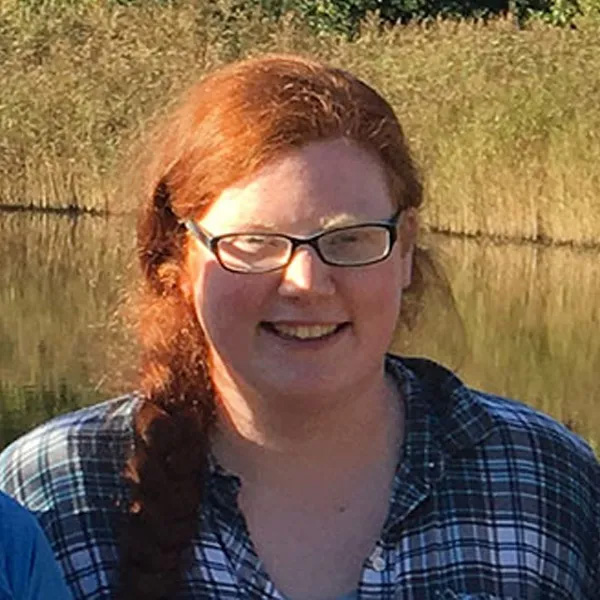
Mandy Stoker
Based at: Rothamsted Research
Industrial Partner: Barfoots
PhD Title: Adding evidence to decision making regarding cover and catch crops
I’m a great believer in keeping an open mind and not ruling things out particularly when it comes to doing things you want do in life. It’s taken me 50+ years to get around to doing a PhD. I consider myself to be extremely privileged to be able to study something I’m interested in for 4 years.
I grew up in Shropshire and did my first degree in Environmental Science majoring in Chemistry. My career started as a chemist for the Milk Marketing Board and later a laboratory manager for Unigate Diaries in West London. Having gained my industrial experience, I went on to pursue a career as an environmental consultant working in the U.K., Italy and Indonesia on waste strategies for the World Bank, Government Departments and Public Sector.
I decided to set up my own consultancy in 2000, employing some 15 consultants working predominantly in the renewable and waste sectors.
I sit on a number of boards and steering groups including:
The technical panel of the Anaerobic Digestion Biogas Association (ADBA);
Shropshire Council business board
Marches LEP – low carbon funding task group
Advisory role to Shrewsbury Centre Chester University on the setting up of an environment and sustainability centre.
Member of CIWM and IEMA
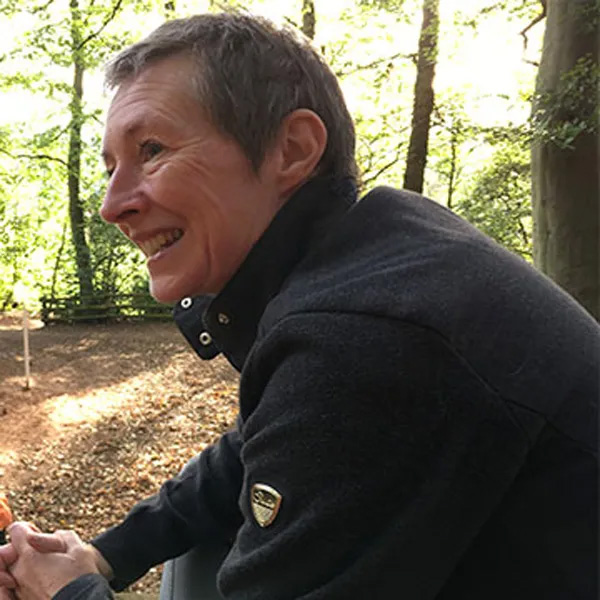
Nicholas Kuht
Based at: University of Warwick
Industrial Partner: G's Fresh
PhD Title: Enhancing salad onion quality through an understanding of in-field variation
I grew up in Weston-super-Mare and completed my undergraduate degree (MBiol, BSc) in biology at the University of Leeds, where I graduated from in 2017.
During the course of my undergraduate studies I became interested in plant sciences and agriculture, and how science can be applied to the real world. I completed a summer fresh produce research placement at Harper Adams University which boosted my interest in this field and opened my eyes to the opportunities in this sector. All of which has led me to undertaking this Waitrose CTP studentship investigating variation in salad onion production with G’s growers.

Alex Blomfield
Based at: Lancaster University
PhD Title: Dispersal ecology and population persistence of an endangered butterfly in a fragmented semi-natural habitat within an agricultural landscape
I grew up in Kent where I started volunteering for the Kent Wildlife Trust, doing practical conservation on nature reserves and monitoring butterflies by walking weekly transects. I studied Ecology and Conservation at Lancaster University where I was fortunate to do my undergraduate dissertation on habitat management for fritillary butterflies, in partnership with Butterfly Conservation.
After graduating with a 1st I completed a three-month internship with the Scottish Wildlife Trust at Loch of the Lowes, before returning to Lancaster to start a PhD. I am now working to understand drivers of population decline and the influence of habitat fragmentation on one of Britain’s most threatened butterflies: the pearl-bordered fritillary.
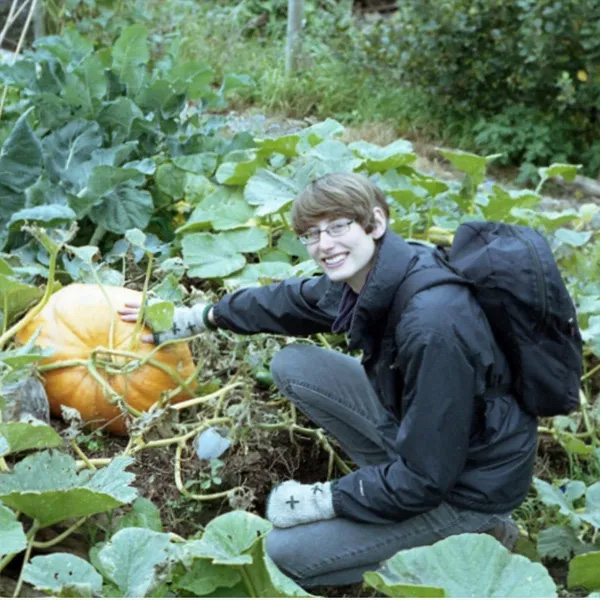
Konstantinos Tsiolis
Based at: University of Reading
Industrial Partner: Worldwide Fruit
PhD Title: Nesting resources: the missing element of sustainable crop pollination
Growing up in small family farm located in a small village in rural Cyprus, I experienced first-hand the consequences of poor pest control and poor management of important pollinator species. As a result, I have built a great interest in agricultural entomology and I decided to join the Canterbury Christ Church University (CCCU) in England to acquire skills and knowledge that could provide effective solutions in fruit farming.
During my studies at CCCU I have gained extensive research experience through my course and via an internship. I obtained a three month paid internship which consisted of a number of field experiments. The project involved the investigation of the role of Forficula auricularia L. on Cacopsylla pyricola F. while under the biocontrol Anthocoris nemoralis F. It was part of a collaborative biocontrol research project between CCCU (Dr. Joseph Burman) and NIAB East Malling Research (Dr. Michelle Fountain) and partially funded by Agrii. I wanted to get involved even deeper in research, get more experience, acquire various new knowledge and skills and I decided to enrol for a Master by Research in Ecology degree. One of my passions throughout my studies was wild bees and the need to increase awareness of their importance and decline, especially in the agricultural sector. I was fortunate to combine my passion with my Master’s research project which has studied the preferred nesting habitat of various solitary ground-nesting bee species.
Solitary ground-nesting bees play a significant role in the pollination of agricultural crops, yet very little is known about this vast group, especially compared to their better known cousins honeybees and bumblebees. A number of studies have indicated that flower-rich strips in orchards can boost food for pollinators. However, understanding the nesting needs of specific pollinators is a key element for sustainable supply of pollinators. My PhD project is based at University of Reading in collaboration with NIAB East Malling Research and Worldwide Fruit Ltd., focused on designing and testing novel interventions to provide bee nesting resources in UK fruit orchards. I am grateful to Waitrose CTP scheme for their support and for the opportunity to work collaboratively with a number of organisations acquiring valuable experience and skills which will play a significant role in my future career.
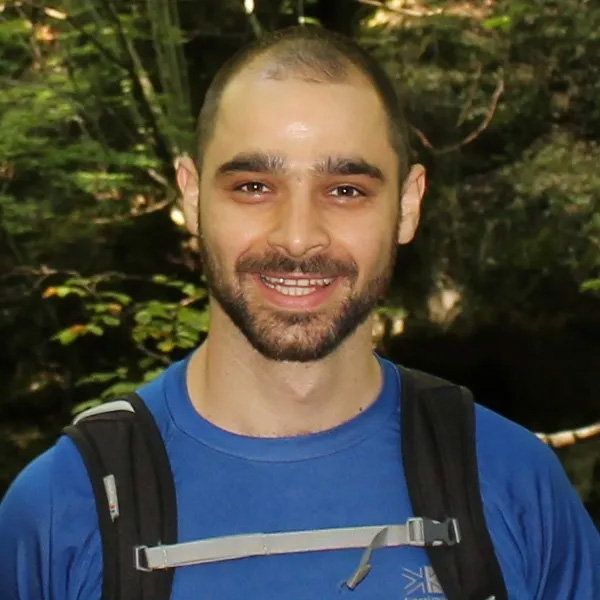
Patrick Skilleter
Based at: Lancaster University
Industrial Partner: Branston
PhD Title: Soil management and irrigation interactions affecting root-to-shoot signalling and yield of potato
I have had a strong passion for plant science for nearly ten years now, starting on the day I read an article about how food shortages were becoming increasingly likely due to rapid population growth and found myself thinking about how that’s an issue I’d like to help solve. I often found myself drawn to genetics, but found the intricacies of cell biology fascinating as well.
Following my interests, I chose to develop a solid understanding of the principles of biology by undertaking a BSc in Biology at Sheffield Hallam University. From there, I went on to specialise with a Masters’ in Crop Improvement at The University of Nottingham, where I undertook research projects involving the monitoring of broad beans sown on different sowing dates to determine the most optimal for early growth, and partook in a large scale investigation into optimising supplemental LED lighting for high yields of herbs, particularly coriander.
I found myself drawn to this particular PhD as it directly falls in line with my overarching goal, and compared to the above ground biology, roots are far less well studied. As such, I feel that in order to close the yield gap, roots are the next target for improvement, and hence this project is of great importance.

Nick Buck
Based at: University of Reading
Industrial Partner: BeryyWorld
PhD Title: Integrating control of a major new pest with biocontrol and pollination in raspberries
I have had a profound interest in studying ecology and biodiversity since my GCSEs. This drive motivated me to pursue this interest by studying Biology BSc at University of Worcester. While preparing for my undergraduate dissertation the research I carried out on invertebrates, specifically desert locusts (Schistocerca gregaria), allowed me to appreciate their place and importance in a variety of ecosystems.
After my bachelors, I went on to study invertebrates in further detail by enrolling on the Entomology MSc course at Harper Adams University. Working for University of Reading as Pollinator Projects Technician after the MSc, I expanded my skills, knowledge and experience of working on crops such as beans, strawberries and apples.
Beginning my research at University of Reading in October 2018, I am currently studying the impacts of novel control strategies for Spotted Wing Drosophila (Drosophila suzukii) on ecosystem services and crop production in raspberries. While focusing on how to maximise crop yield in raspberries by limiting infestation by SWD I will also analyse the impacts these control strategies, such as wire mesh, can have on pollination efficacies and natural enemy immigration into the crop.

Anastasia Sokolidi
Based at: Rothamsted Research
Industrial Partner: APS Group
PhD Title: Smart detection of airborne diseases in protected crops
As a child I always had interest in plant science but for some reason believed there would be more security in the medical/human field of research. That is the reason my first degree was received from the University of Edinburgh in Biochemistry. However, during my time there I came across a pivotal point for me when I did an internship on the molecular aspect of plant pathology. There my interests became more fuelled and prominent. So, after my BSc I decided to take a leap of faith and did an MSc in Crop Improvement at the University of Nottingham.
This is how I arrived to do a PhD with the Waitrose CTP scheme. They gave me the opportunity to be based at one of the most prominent research institutes in my field (Rothamsted Research) and work in collaboration with Warwick University and Waitrose as an industrial partner. I am very keen to work on my project that entails developing DNA based assay for airborne spore detection of several pathogens as well as studying, detecting and controlling the spread of fungal pathogens of tomatoes and lettuce in the horticultural industry.
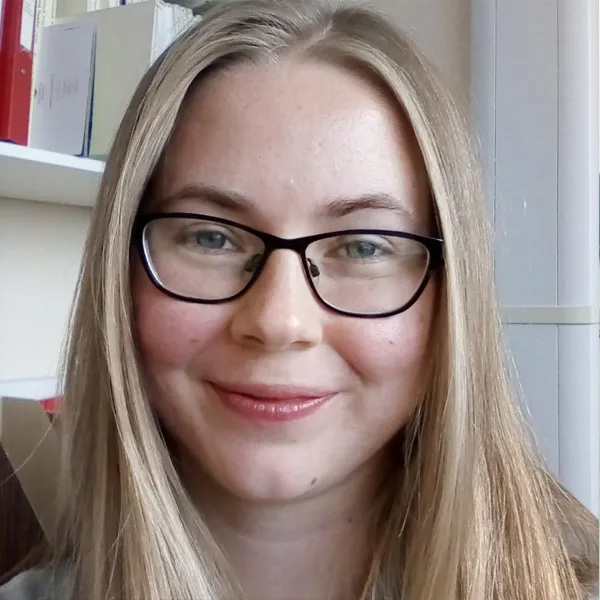
Helena Ripley
Based at: Lancaster University
Industrial Partner: Primafruit
PhD Title: Maximising the effectiveness of riparian buffer zones in the Mediterranean
In this project I will be researching the use of plants to reduce soil erosion and its associated problems in Spanish agriculture. Spain has the most severe erosion in Europe which not only causes issues for farmers through loss of fertile soil but can also result in water pollution as sediment and nutrients are washed into rivers and streams. Sediment loss predominantly takes place during intense rainfall.
Plants can help to stabilize soil by breaking up individual raindrops before they hit the ground, through interrupting runoff and trapping sediment. Some plant species are more effective at reducing soil erosion than others. An important consideration for the plants used in this arid region is the amount of water they require. I am excited to be working with Primafruit on this project and hope that the outcomes can be implemented by their suppliers in Spain.
I have always been passionate about the natural world and learning about how it is interconnected. I first came to Lancaster University in 2010 to study a BSc in Environmental Science; my interest in soil began during this degree. After graduation, I worked on a placement in a development organisation in Rwanda, and then was a Research Assistant for a development consultancy based in the UK. The experience from both of these jobs led to me developing an interest in sustainable agriculture and shifted me away from a predominantly ecocentric outlook. A couple of jobs later I returned to Lancaster to pursue this interest through an MSc in Environment and Development. For my dissertation I researched soil fertility in the mid-hills of Nepal by interviewing farmers and collecting soil samples, working with fellow students at Lancaster University and Kathmandu University. During my Masters I decided I wanted to engage in a career researching sustainable agriculture with a focus on soil, beginning with this PhD.
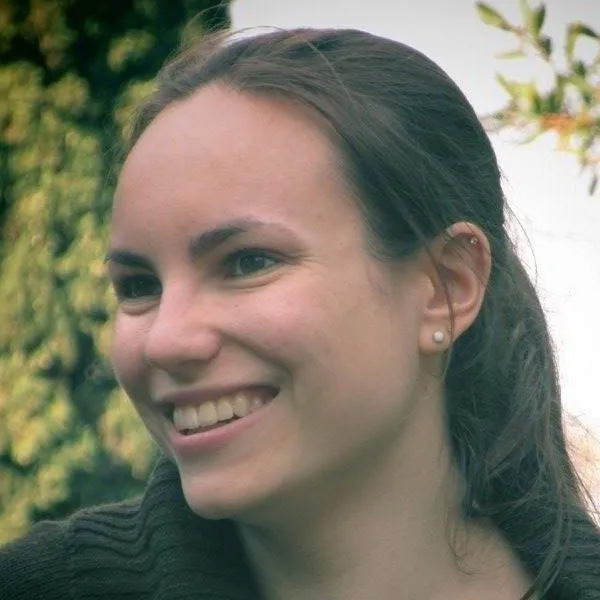
Dominic Stevenson
Based at: Lancaster University
Industrial Partner: APS Group
PhD Title: Can inherited memories of stress help protect crops from pests and disease?
I have previously obtained an Integrated Master’s in Biochemistry from the University of York during which I fostered my interest for plant biology. I started my undergraduate degree studying general biochemistry and molecular biology but my interests eventually shifted to plant sciences and biotechnology. For my final year project at York, I worked in the Centre for Novel Agricultural Products (CNAP) and investigated germination in Arabidopsis thaliana.
Due to various concerns about pesticides, such as harm to the environment or residues on food, there is increasing pressure to look for alternatives for protecting crops from pests and disease. One such alternative is ‘priming’. Priming is a phenomenon by which, following an initial exposure to pests, plants are able to launch stronger defence responses to pests in the future. This could be likened to getting a vaccination for plants! Plants can also be primed by treating them with hormones rather than exposing them to pests. Working with our industrial partner, APS Salads, we hope to make priming a viable alternative for pesticides in commercial tomato growth.

Alex Bleasdale
Based at: Lancaster University
Industrial Partner: Worldwide Fruit
PhD Title: Sustainable intensification of top fruit production through precision orchard management using novel remote sensing technologies
I am fortunate enough to be studying this project on precision orchard management in my hometown of Lancaster. I was drawn towards this project for its application of smart technology to solve real-world environmental challenges, and the potential for my research to have a tangible impact on the food industry.
I have a multidisciplinary background that started with a Mechanical Engineering BEng at Coventry University. Engineering challenged me into tackling complex problems, managing long-term projects, and taught me the benefits that working alongside industry can have. After a placement year as a Project Engineer in the aerospace industry, I realised my passion lead more towards using my skills to tackle environmental issues. For my undergraduate dissertation, I researched the use of automation technologies in horticulture, primarily automatic harvesting of tomato, cucumbers and sweet peppers. The realisation soon came that although a vast amount of research had been done in the area, there were still a lack of solutions commercially available. Understanding the gaps between ‘smart’ farming and the current standard practice is partly what inspired me to undertake this project. In my effort to understand more about environmental issues facing society and how we deal with these I completed a Masters in Environmental Management from Lancaster University. I found a love for research and new I wanted to further my academic career at a PhD level.
My project will cover the theme of sustainable crop production. I will research and deploy the use of novel remote sensing technologies and data analytics for an objective and quantifiable way of acquiring information on the condition of a large number trees across an orchard. This data will be used to develop algorithms that can identify the precise requirement of management inputs necessary that may increase yield and quality whilst minimising labour, energy and chemical inputs. This project will be completed in with my industrial partner Worldwide Fruit, a supplier of top quality fruit to UK supermarkets. Worldwide Fruit will help introduce my research to growers and implement my findings into commercial orchards within the UK.
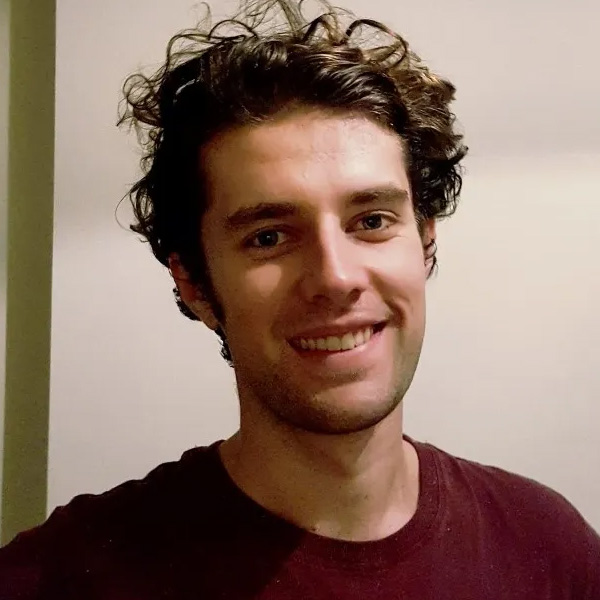
Miranda Burke
Based at: Lancaster University
Industrial Partner: Suncrop
PhD Title: Can we reduce food waste in the supply chain from farm to fork?
I started my academic career as a mature student aged 25 after a career of sales and customer service. I always felt underwhelmed and that there was something missing, so I started college to do an access to HE course and progressed to study Biology BSc Hons at Royal Holloway University of London. During my time at Royal Holloway I participated in many volunteer positions, biological sciences related and otherwise, and gained a fantastic network of friends and colleagues.
I graduated from Imperial College London in 2018 with a Masters by Research in Ecology, Evolution and Conservation. Within this degree I was able to conduct two research projects which were both very different. The first investigated the ecology of bdelloid rotifers and their interactions with bacteria species. The second project looked at improving sustainable control of mosquito species in a tropical island ecosystem. I gained a wide range of skills and knowledge from both of these projects.
I have become increasingly more interested in environmental issues, food security being one of these. My PhD is looking at reducing food waste in the supply chain, this is something I am very excited about. I would like to continue working within agricultural and environmental sustainability after my doctorate, most likely within industry working directly with retailers and producers where I can make a fundamental impact.

Pete Jorgensen
Based at: Lancaster University
Industrial Partner: Waitrose
PhD Title: Development and Testing of an on-line Knowledge Exchange Tool for food and farming
As a youngster, I spent many happy hours on my mother’s allotment spreading manure, planting beans, digging up potatoes, and getting good and mucky. During my adult life I have worked in several roles, including seven years as a web designer but I have always cultivated food whenever I have been lucky enough to have access to outdoor space to grow in.
However, it was not until I began studying horticulture that my passion for plants began to realise its full potential. Firstly, I completed a foundation degree in Horticulture at Myerscough College in Lancashire before moving to Cornwall for a year to top up my degree to a BSc (Hons) with Eden Project Learning.
Whilst at Eden I had the opportunity to study sustainability and ethnobotany (people and their relationship with plants) as well as conducting lab-based research on the tissue culture of Plymouth pear (Pyrus cordata L.). I also hold a Permaculture design certificate (PDC) and have completed two MOOCs – one with the SDG (Sustainable Development Goals) Academy – ‘Planetary Boundaries and Human Opportunities’, and one with UNITAR (United Nations) – ‘Integrated Planning for Climate Change and Biodiversity’. These courses complemented my academic studies and helped to build a broad trans-disciplinary skillset that includes physical and biological science as well as a general understanding of the social, political, and economic factors that are integral to the global challenges we are all facing.
More recently I have completed an MA in Environment and Development at Lancaster University. This gave me the opportunity to delve deeper into diverse subjects such as sustainable soil management, geoinformatics, data analysis and programming, and social science research methods. I am now fortunate enough to have been given the opportunity to focus on researching online knowledge exchange (KE) in food and farming with the aim of building a usable and useful tool. One of the more challenging aspects of this PhD will be trying to determine methods for measuring the effectiveness of online knowledge exchange not just in terms of audience reach but in achieving tangible real-world outcomes.

Max Davis
Based at: Lancaster University
Industrial Partner: Worldwide Fruit
PhD Title: Improving soil health in apple and pear orchards
Developing sustainable agricultural systems and improving soil health are burgeoning issues in the UK and the rest of the world. Healthy soils are critical to supply nutritious food, clean water, carbon sequestration and many other ecosystem services. Moreover, they must be resilient to the challenges posed by climate change, such as drought.
My project explores plant-soil interactions and how they may be beneficial to soil health. Research will take place in apple and pear orchards, in collaboration with Worldwide Fruit. Orchards with established wildflower strips, known to support pollinators and natural predators, will be studied initially. A suite of soil health indicators relevant to apple and pear orchards will be developed.
My background is focused in ecology. I gained a BSc in ecology in 2017 and an MSc in environmental management in 2018 from Aberystwyth University. My research projects focused on plant ecology, including a project on the competitive potential of a noxious weed species under future waterlogging regimes. This was followed by two short term roles, as a Plant Ecologist at The Centre for Ecology & Hydrology and as a Research Assistant at NIAB EMR.

Sam Cusworth
Based at: Lancaster University
Industrial Partner: Waitrose
PhD Title: Can we reduce the use of single use plastics in food production?
I am a conscientious and passionate student of the environment. My passion for the environment has stemmed from my love of the outdoors. As an avid hiker, fell runner and outdoorsman, I have come to appreciate the beauty of the landscape around me. Throughout my education, I have become increasingly aware of the pressures upon the environment, particularly those that are human-generated. This has led me to pursue a PhD in Environmental Science, with the aim of rectifying some of these pressures.
My academic career began in 2015, when I undertook a BSc in Physical Geography at Lancaster University. During my undergraduate degree, I thoroughly enjoyed my studies, which led me to study an MSc in Environmental Management, remaining at Lancaster University. During this period, I produced a dissertation on the successfulness of peatland restoration projects and undertook modules relating to renewable energy and land systems. I have now begun my PhD and am looking forward to what the next few years hold.
This PhD focusses on reducing single-use plastics in food production, particularly how this plastic is used in agriculture. The fate of this plastic is relatively unknown once it serves its use in growing crops. Measuring plastic debris in these agricultural soils will be important to determine any further effects it may have and trace its fate in the environment. Documenting the use and importance of plastic in UK agriculture will determine where plastic can be reduced or replaced with more sustainable materials. Considering that plastic pollution is at the forefront of current research and society's interests, this is a very topical project.

Chris Wyver
Based at: University of Reading
Industrial Partner: Worldwide Fruit
PhD Title: Quantifying and mitigating spatiotemporal risks to pollination services caused by climate change
Growing up in Kent I developed an interest from a young age in the traditions and traditional industries of the area. Being brought up surrounded by orchards made me think about how much value they bring, not just to me, but to the local and national economy. After reading an article that highlighted how the changing climate might threaten Kentish and indeed British orchards, I decided I would like to be involved in ensuring their survival into the future.
I am also interested in not only the science behind environmental problems such as this, but also how they are managed to satisfy different stakeholders who often have conflicting opinions. Because of this I chose to study a BSc in Environmental Management and undertook a year-long placement at the Game and Wildlife Conservation Trust as a member of their farmland ecology unit. This allowed me to develop fieldwork and entomological skills. During my undergraduate degree I took part in projects looking at pesticide residues in several fruit crops and comparing tillage options for natural enemies in arable crops.
I have an interest in this PhD project both because of my interest in the future of orchards and also because it gives me the chance to develop my knowledge of pollinators, a subject I touched upon while with the GWCT.

Kiera Dymond
Based at: University of Reading
Industrial Partner: Greencell
PhD Title: Sustainable avocado production: Challenges, solutions and the role of biodiversity
For the past 12 years, I have been working and studying in a range of different fields related to agriculture and international development. After completing a B.Sc in International Development, I worked for several years on organic farms with the aim of increasing my practical understanding of agriculture. I then undertook an MSc in Food Security and Sustainable Agriculture, in order to provide more scientific knowledge to my practical background.
For the past five years I have been working in East Africa on a range of sustainable agriculture projects. Most recently I have been based in rural Kenya where I have been researching impactful agricultural products/ farming techniques relevant to smallholder farmers.
I am excited to be starting this PhD to further my knowledge on ago-ecology and to gain a deeper understanding of commercial agriculture. My project will be based in Chile and is looking at how biodiversity, through pollinators and other beneficial insects, contributes to avocado production. In addition to this, I will also aim to understand how this production is affecting biodiversity through changes to land and water use.
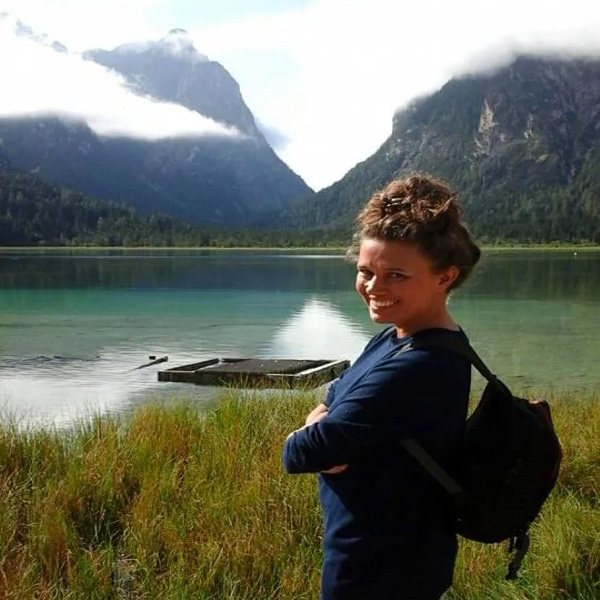
Jamie Pike
Based at: University of Warwick
Industrial Partner: Primafruit
PhD Title: New tools for predicting spread of Fusarium wilt in bananas
I have always been passionate about plants and begun studying horticulture after my GCSEs. I undertook a BSc in Horticulture – Plant Science at the Eden Project in Cornwall, UK where I developed an interest in plant pathology. I developed a particular fascination with technologies, controls, and alternative growing systems which can be used for sustainable plant pest and disease management.
Pursuing my interests, I undertook a BSPP summer studentship at Rothamsted Research where I contributed to research on the recently discovered brassica pathogen, Pyrenopeziza cascadia, as well as new in field diagnostic technologies for air-borne fungal pathogens. On my return to Eden, I continued to examine more sustainable approaches to pest and diseases management, focusing my undergraduate research on the use of a biological control agent to manage the banana pathogen Fusarium oxysporum f. sp. cubense TR4, which has been identified in the Eden Project’s rainforest biome.
The Waitrose CTP scheme has enabled me to continue working with Fusarium oxysporum f. sp. cubense TR4 and pursue my interest in developing technologies which may contribute to the sustainable management of plant pathogens. My PhD aims to develop and employ new technologies to aid in Fusarium oxysporum f. sp. cubense detection and identification, including both molecular detection technologies and image analysis-based systems, such as hyperspectral imaging. Hopefully, the technologies developed can be employed in the control of other pathogens in other crops in the future.

Lucy Crowther
Based at: Lancaster University
Industrial Partner: Barfoots
PhD Title: Novel approaches for the application and formulation of biological pesticides for crop protection
Growing up in rural South Shropshire, I have been surrounded by farms my entire life, little did I know it would become such an integral part of my education and career. During my undergraduate degree, I was lucky enough to be based out of Reaseheath University Centre, where I was able to study bees and agricultural margins for my dissertation, opening up my research interests to ecosystem services and agroecology. I continued this interest with my Research Master's, investigating the beneficial components of agri-environment schemes for bee populations and bumblebee colony growth, within the Shropshire Hills Area of Outstanding Natural Beauty.
Between my degrees, I have been able to volunteer with the Shropshire Wildlife Trust and the National Trust and worked a season as an Environmental Consultant. During these times, I was able to nurse my interest in entomology, learning to identify Hymenopterans and Oligochaetes, both hugely beneficial to agricultural ecosystems.
My PhD project will be focused on biological control of crop pests; specifically control of the pest midge species known as the swede midge (Contarinia nasturtii), sporadic pest of brassicas. We hope to learn about natural enemies, including parasitoid wasps that have potential to be used as biological control agents. Additionally, we will look into landscape management technique, such as floral margins to benefit natural enemies and intercropping in a “push-pull” strategy toward pest management.
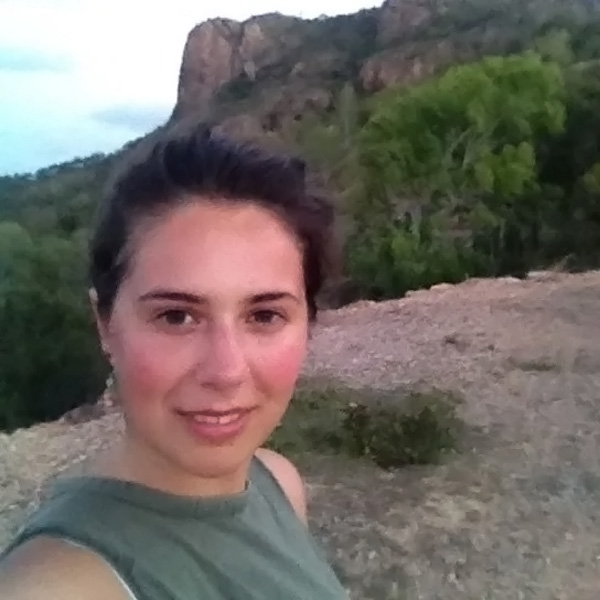
Ellie Barbrook
Based at: University of Reading
Industrial Partner: The Watercress Company
PhD Title: Optimising soil nitrogen (N) for babyleaf salad crops for sustainable development.
I grew up in a small rural town in Essex where my passion for plants began. I followed this interest by choosing to study Plant Science (BSc Hons) at Canterbury Christ Church University (CCCU). Graduating in 2020 with a First-class degree, focusing my final year project on the effects of alternative splicing on drought tolerance transcription factors in Arabidopsis thaliana. My aim was to find a splice variant that enhanced the transcription factor’s natural ability to help the plant be drought resistant. My time at CCCU helped me to develop my desire to work on developing methods to make crop production more sustainable.
My current research at the University of Reading focusses on optimizing soil nitrogen for Spinach baby leaf salad crops (in partnership with The Watercress Company, in Dorset). Nitrogen pollution resulting from suboptimal use efficiency of applied fertilizer nitrogen by crop plants is responsible for eutrophication of aquatic ecosystems (from leaching of nitrate) and emissions of nitrogenous gases, including the greenhouse gas nitrous oxide. There is potential for optimisation of nitrification inhibitors in babyleaf salad production, which could minimise leaching of nitrates and nitrous oxide emissions from agricultural soils. I intend to test the effect of timing and composition of the nitrogen-based fertiliser in combination with nitrification inhibitors with the goal of increasing nitrogen use efficiency.
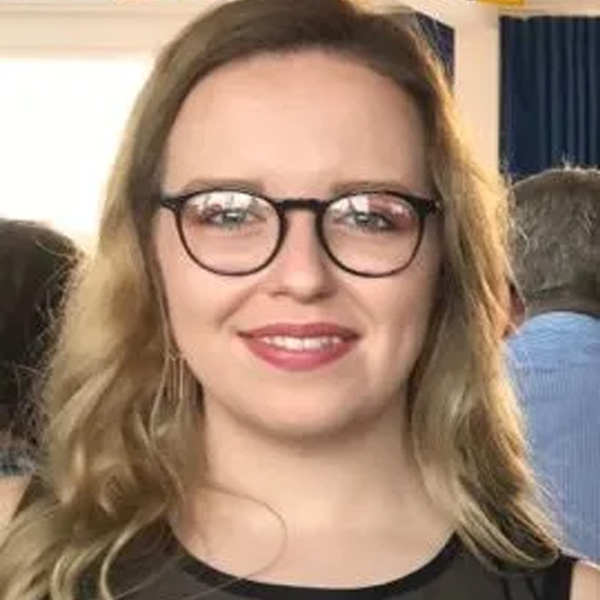
Laine Callaghan
Based at: University of Reading
Industrial Partner: BerryWorld
PhD Title: Precision Apiculture: enhancing the health and effectiveness of managed honeybees for soft fruit production.
I have always been fascinated by ecology, exploring nature in both my degrees and my travels. I particularly enjoy invertebrates. For my Master’s dissertation, I investigated a population of rare moth species at their last remaining English colony and in my spare time I care for tarantulas.
At Lancaster University I completed my Bachelor’s and Master’s degrees, grasping the foundations of biology before exploring ecology and conservation in more detail. I learned that in order to achieve sustainable crop production, first we must consider more than the environment.
My PhD project is based at the University of Reading and is focused on improving the management of honeybee colonies in soft-fruit farms. The aim of the project is to find the optimum conditions in which to keep the hives in order to conserve honeybee health and boost productivity for the farmer.
By working with BerryWorld and The World Bee Project, I will monitor honeybee activity using high-tech in-hive sensors across a range of conditions. These sensors can measure hive weight, temperature, humidity and even the number of bees entering and exiting the hive. Initially, our experiments will focus on the impact of hive distance from the crop, but may expand to hive density, size or positioning in the future.
In doing so, we hope to build a novel tool that can be utilised on soft-fruit farms across the UK to inform the effective management of honeybee colonies.
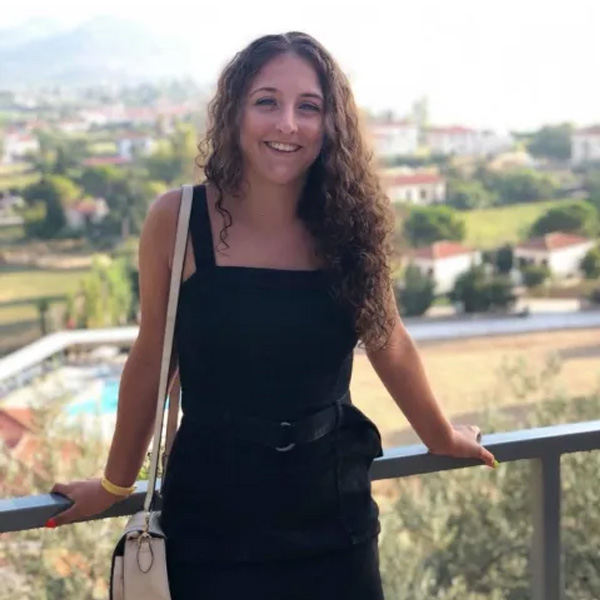
Ed Hill King
Based at: Lancaster University
Industrial Partner: Produce World Group
PhD Title: Novel non-destructive detection of internal defects in potatoes
I have carried a fascination for nature and agriculture with me from an early age. As a natural problem solver, I gained a degree in engineering, studying ‘Electronic Engineering with Music Technology Systems’ at the University of York, developing a toolset for finding new and tangible solutions to real-world problems and being awarded a first for my project using machine learning for assessment of Parkinson’s disease. Many of the most poignant problems we face, both as a species and as a planet, are environmental and agricultural in nature.
I taught myself how to develop video games aged 11 and have been programming ever since; more recently I taught myself to paint. I find that each new artform offers a unique perspective with which to tackle problems in a lateral and innovative way. Fuelled by a passion for sustainability, I was twice elected as campaigns and fundraising officer for my university’s vegan society and volunteered at the university’s low-waste ethical foods shop. I also served on the parkour society committee, building a flourishing and active community.
Studying for a PhD is the perfect opportunity to discover new knowledge and develop practical skills to tackle the world’s most pressing issues. I hope to contribute to the drive toward sustainability and the advancement of human ingenuity.
In my project I am exploring how non-destructive methods can be used to detect internal defects in the potato. Venturing into avenues of spectroscopy, ultrasound and machine learning, I aspire to discover and innovate new and efficient methods of defect detection and identification.
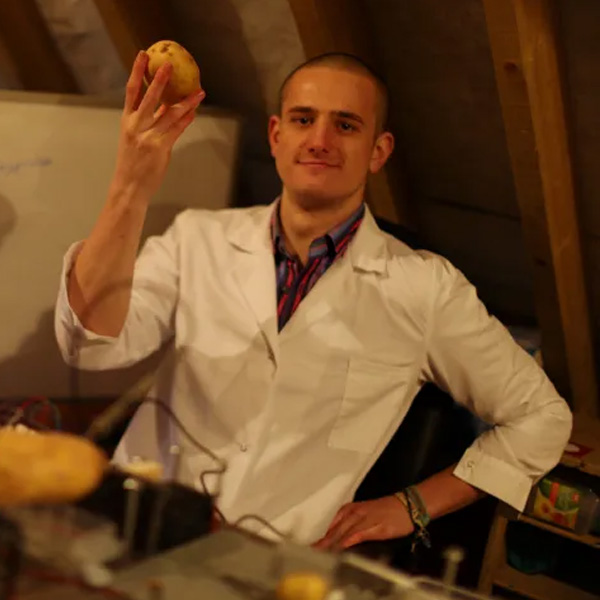
Laura Reeves
Based at: University of Reading
Industrial Partners: NIAB EMR and Worldwide Fruit
PhD Title: Pears, pests and natural enemies: modelling tri-trophic interactions in a changing climate
I’m a PhD student at the University of Reading and am really excited to be involved in the Waitrose CTP programme. I have a keen interest in ecology and climate change and enjoy drawing nature, rock climbing and walking in my spare time. I recently completed my Masters at the University of Bristol, focusing on pollinator behaviour in respect to rainfall and climate change.
I have also worked on the invasive species Himalayan Balsam during a summer internship at the University of Bristol. Monitoring if the transport of Himalayan Balsam pollen by bumblebees can lead to pollen clogging in native plant species. However, I have switched from pollinators to pest species for my PhD.
My research project focuses on the pear psyllid Cacopsylla pyricola. C. pyricola is a pear pest that causes significant economic costs to the UK pear industry; downgrading the quality of pears through fruit russet, as honeydew can drip onto the pear fruit, encouraging growth of black sooty mould. Pear psyllids at high densities can lead to psylla shock, resulting in defoliation due to a toxin produced in their saliva. Syllids are also vectors of pear decline disease, which can reduce nutrient transport within the roots of pear trees. I’ll be looking at tri-trophic interactions of these pests with pear trees and natural enemies including earwigs, anthocorid bugs and ladybirds and if these interactions are disrupted by climate change. I am looking forward to working with NIAB EMR and my industry partner Worldwide Fruit for this project and hope that this research will contribute towards predicting and mitigating future impacts of pear psyllids.
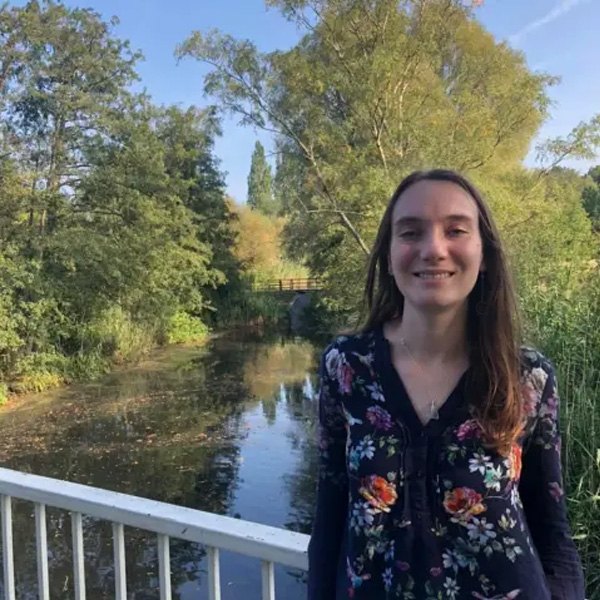
Catherine Walsh
Based at: Lancaster University
Industrial Partner: Bakkavor
PhD Title: Optimising yield and flavour consistency of rocket greens
I am excited to carry out my PhD project as part of the WCTP, working with Bakkavor at Lancaster University. It is a really interesting project, focussing on how perennial wall rocket (Diplotaxis tenuifolia) utilises the C2 photosynthesis pathway to improve yield and flavour with minimal resource inputs. The pathway essentially operates as a carbon concentration mechanism and recycles photorespired CO2 to maximise carboxylation under stress conditions.
I will be researching how this pathway operates in relation to the C5 pathway and amino acid synthesis, which are responsible for volatile organic compounds and glucosinolates to maintain flavour quality and consistency. The results of this project will then contribute towards the knowledge required by growers to mitigate climate change while maintaining yields to support growing demand.
I am pleased to be back at Lancaster University where I previously studied for an MSc in Sustainable Agriculture and Food Security. Prior to being at Lancaster, I gained a BSc in horticulture at Myerscough College. Before starting my PhD, I was previously the head grower for a fine dining restaurant, where I gained experience growing a diverse selection of crops. I have a love of growing and cooking good food for my family and friends. I’m particularly interested in sustainable crop production to preserve the
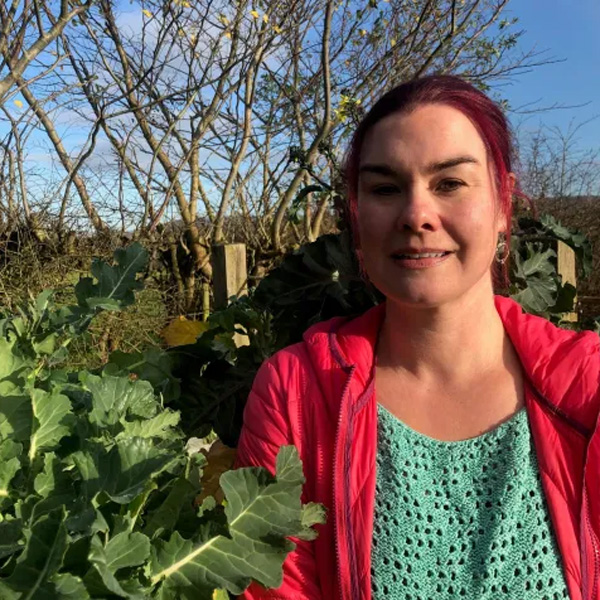
Jennifer Davies
Based at: Lancaster University
Industrial Partner: Produce World
PhD Title: Bridging the crop-soil-water phosphorus gap: Managing phosphorus for sustainable crop production and sustainable water
Growing up on a small family dairy farm in Cheshire, agriculture and its sustainability are something that I have always been passionate about. Resource protection and nutrient management within productive agricultural systems have since become the main focus for my research and career aspirations.
I completed my first degree at Lancaster University studying Environmental Biology but then went on to work as a R&D chemist for an industrial water-based coatings company. Following a decision to change my career in 2017, I returned to Lancaster University to complete my master’s degree in Environmental Management. This allowed me to reconnect with my farming roots and develop a deeper understanding of how profitable agricultural practices and conservation can work together for a more sustainable farming future.
As a qualified nutrient management adviser, I recognise the importance of quality advice to optimise crop production and enhance resource protection. After working with farmers and land managers as an agricultural consultant, I have been drawn back to research. I am currently working on the development of an integrated phosphorus modelling system that will inform crop nutrient recommendations to help make more efficient use of phosphorus fertilisers and minimise diffuse phosphorus pollution of watercourses.

